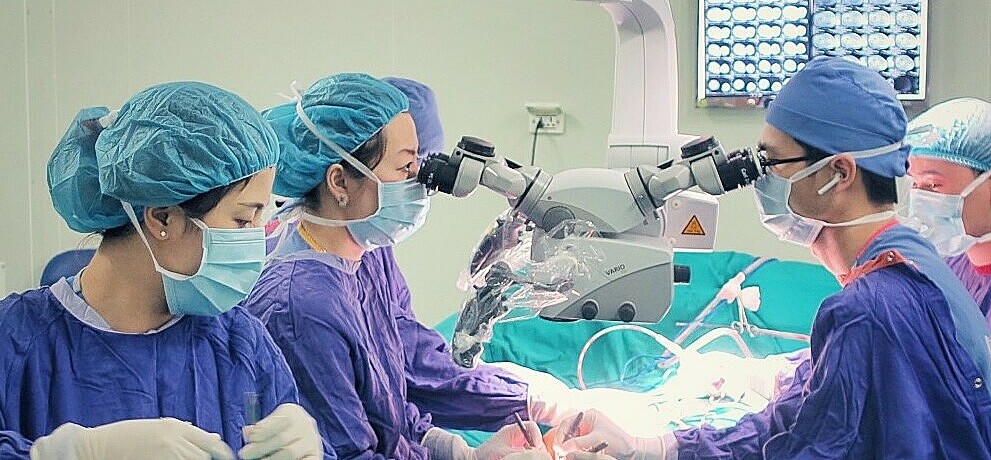The patient arrived at Viet Duc Friendship Hospital in July severely malnourished, with a large, hardened tumor on his tongue. He had experienced persistent mouth sores and pain for an extended period but delayed seeking medical attention. He only went to the hospital after 4-5 months of being unable to eat or drink.
According to Dr. Bui Mai Anh from the Maxillofacial - Plastic and Reconstructive Surgery Department, examining and anesthetizing the patient proved challenging because the tumor filled almost his entire mouth. Imaging revealed the extensive spread of the cancer, necessitating the removal of his entire tongue and mouth floor, along with a neck dissection to remove affected lymph nodes.
Following the tumor's removal, the surgical team reconstructed the patient's mouth using a free flap of skin and muscle from his thigh, including connecting the motor nerves. The complex 10-hour microsurgery successfully reconnected the small blood vessels and nerves. Dr. Anh stated that if recovery progresses well, the reconstructed tongue should regain some movement, enabling the patient to eat, swallow, and possibly speak simple words.
 |
Doctors perform tongue cancer surgery. Photo: Thao My |
Experts warn that oral cancer is the third most common head and neck cancer. Early-stage symptoms, such as persistent sores, mouth pain, difficulty chewing or swallowing, and voice changes, are often subtle and easily overlooked. Many individuals delay seeking medical care until the symptoms become severe, significantly impacting their lives and making treatment more challenging and expensive.
Associate Professor Dr. Nguyen Hong Ha, Head of the Maxillofacial - Plastic and Reconstructive Surgery Department, advises seeking immediate consultation with an ear, nose, and throat (ENT) or maxillofacial specialist upon noticing any unusual signs.
Le Nga












